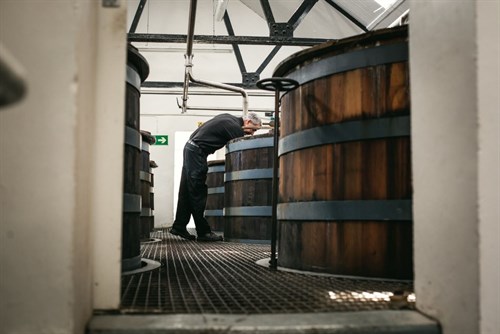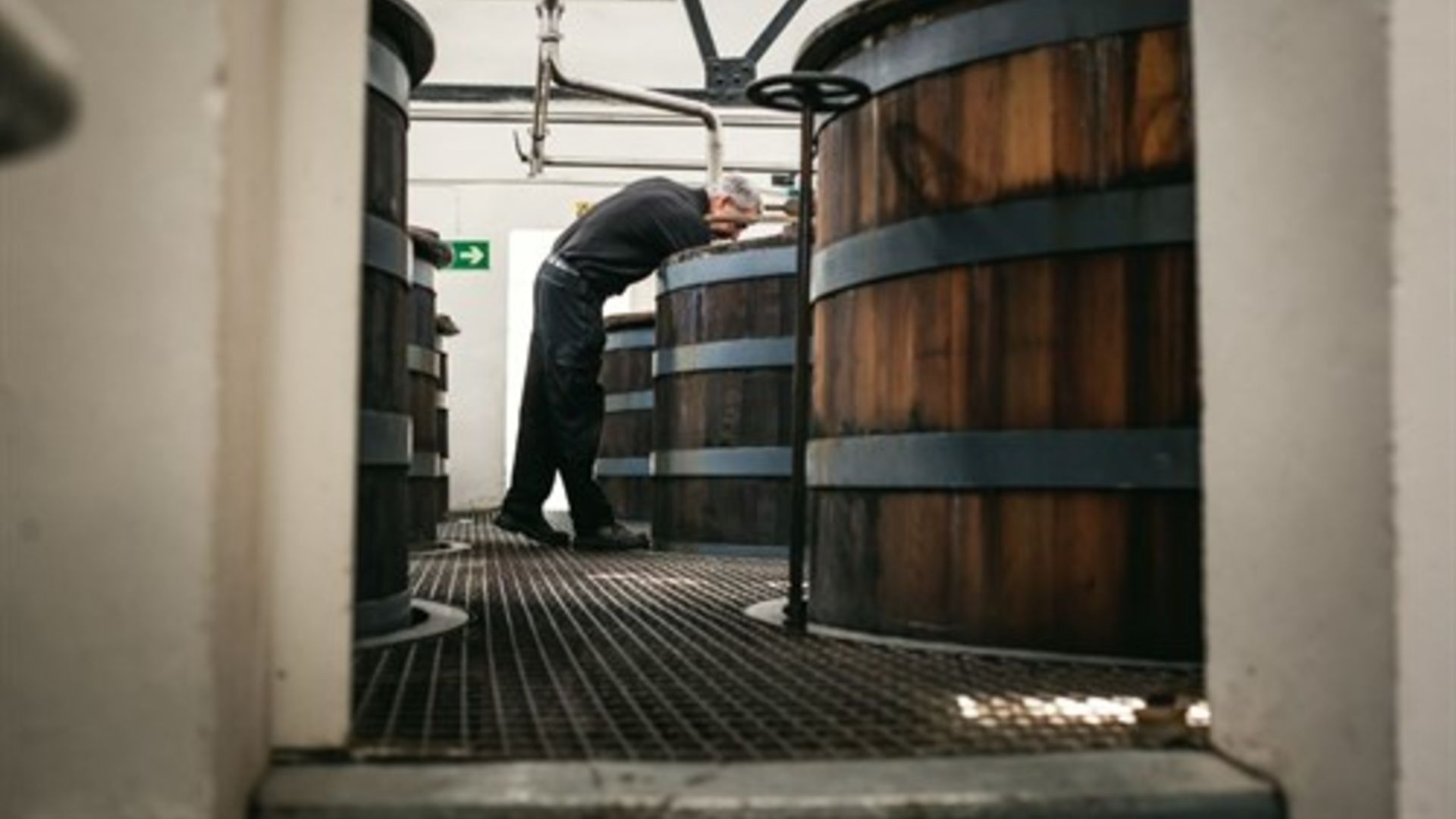You would be forgiven for thinking whisky-making process is more romantic than technical. After all, it’s an age-old craft, and we like to keep to the traditional methods. But these days there is a fair bit of scientific knowledge and engineering prowess employed in operating an efficient distillery. So tradition on one side and a bit of stainless steel on the other. At Knockdhu these two things don’t contradict each other, they are complementary. Modern tradition, remember?

Below is a brief overview of our production setup. Seasoned fans may find this interesting and those of you relatively new to whisky may need to look a couple of the terms up but in the spirit (!) of balance, here’s one for the more technically-minded.
Scale
Knockdhu is manned by six men and two dogs so not a big operation. But together they can make around 1.9m litres of pure alcohol per year. This means Knockdhu is on the smaller side compared to some of the bigger players, but 1.9m litres is still a lot of ethanol… Adjusted for water that’s about one full Olympic swimming pool of spirit.
Ingredients
We use four water sources, all of them up the Knock hill. The pH of water is 7. As to barley, this tends to change regularly, we’re always looking for the best quality and good yield, but at the moment it’s almost exclusively Concerto. Unpeated malt sits at around 1.5ppm phenol, and the peated variety ranges from 20 to 45ppm. That’s peaty.
Process
We use a fairly standard 4-roller Porteus mill which we had installed in 1964. We feed it from six 30-tonne malt bins. Typical fractions are 30-60-10.
Our mash tun takes 5.1 tonnes of grist, which is just right for us. It’s stainless steel with a beautiful brass and copper canopy. The stirring gear is semi-lauter. Mash water goes from the sacred 63.5°C all the way to 90°C. After an 8-hour mash we end up with a wort at original gravity of around 1.068 which translates to about 15% sugar in solution.
The fermentation situation is a tad unusual (and fantastic). We have six classic Oregon pine washbacks holding 23,500 litres each but also two additional ‘secondary’ fermenters in the kiln. Total fermentation time is around 72 hours of which the last 16 are in the secondary. It’s a fantastic setup and the brain-child of our very own Distillery manager Gordon Bruce.
When the thorough fermentation is done the gravity of the wash (beer) should have dropped to 0.999, a bit lighter than water. The sugar is gone, and the alcohol that replaced it makes up around 9% of the solution.
Classic double distillation takes place in two copper pot stills, both with small boil balls and long, slender necks. They are 11,700 and 16,000 litres in capacity respectively heated by pans (wash) and coils (spirit). Lyne arm angle is 80° on wash and 85° on spirit still.
Distilled low wines first go through a small horizontal shell and tube heat exchanger and then into a 58-metre worm. The spirit is condensed in a worm only, the length being 59 metres in this case. What’s unusual is that wash and spirit worms share one tub. Sharing is caring. We reckon we are the only distillery in Scotland to operate the condensation like this.
Average volume of spirit from one run, which takes about four hours, is 3,300 litres at 69.3% ABV. When unpeated, we expect the spirit to be clean, estery, citrusy and floral. The intermediate spirit receiver is partially wooden and partially stainless steel.
We can hold around 3,500 casks on site, but as ever at Knockdhu it’s about quality, not quantity. We have three traditional dunnage and one racked warehouse on site, both types covered with slate roofs.
Sustainability
And finally, we don’t just make tasty whisky; we do our bit for the planet too. We have reed beds on site where we utilise all of our spent lees. That’s tankers off the Highland roads every week and 45 tonnes of carbon dioxide less released into the atmosphere each year. That’s small change though as compared to the 2,500 tonnes of CO2 per year saved by switching to LPG as fuel source a few years ago. And not only are we using cleaner fuel, but we've also been working hard to decrease how much of it we use too. We managed to shave 35% of our annual energy consumption over five years, taking us from 10kwh to 6kwh per litre of alcohol.
